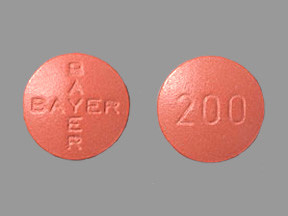SORAFENIB - ORAL
PHONETIC PRONUNCIATION: (soe-RAF-e-nib)
COMMON BRAND NAME(S): Nexavar
GENERIC NAME(S): sorafenib tosylate
Uses
USES: Sorafenib is used to treat kidney, liver, and thyroid cancer. It is a chemotherapy drug that works by slowing or stopping the growth of cancer cells.
How to use SORAFENIB - ORAL
HOW TO USE: Read the Patient Information Leaflet if available from your pharmacist before you start taking sorafenib and each time you get a refill. If you have any questions, ask your doctor or pharmacist. Take this medication by mouth on an empty stomach (at least 1 hour before or 2 hours after a meal) as directed by your doctor, usually twice a day. The dosage is based on your medical condition and response to treatment. Do not increase your dose or use this drug more often or for longer than prescribed. Your condition will not improve any faster, and your risk of serious side effects will increase. Use this medication regularly to get the most benefit from it. To help you remember, take it at the same times each day. Since this drug can be absorbed through the skin and lungs and may harm an unborn baby, women who are pregnant or who may become pregnant should not handle this medication or breathe the dust from the tablets.
Side Effects
Precautions
Interactions
Overdose
Images
Reviews
Faq for SORAFENIB - ORAL
Sorafenib oral medication is used to treat kidney, liver, and thyroid cancer.
Sorafenib works by slowing down the growth and spread of cancer cells in the body.
Common side effects of sorafenib may include diarrhea, fatigue, skin rash, high blood pressure, and nausea.
Sorafenib should be taken exactly as prescribed by your doctor. It is usually taken twice a day, with or without food.
Yes, sorafenib may cause serious liver problems, so regular liver function tests are recommended. It may also increase the risk of bleeding, so caution should be taken if you have a bleeding disorder or are taking blood thinners.
Sorafenib may cause harm to an unborn baby, so it is not recommended during pregnancy. Adequate contraception should be used during treatment and for at least 2 weeks after stopping the medication.
Grapefruit and grapefruit juice should be avoided while taking sorafenib, as it may increase the levels of the medication in your body and lead to more side effects.
Yes, sorafenib can interact with several medications, including blood thinners, anti-seizure drugs, and certain antibiotics. It is important to inform your doctor about all the medications you are taking before starting sorafenib.
The duration of sorafenib treatment will depend on the type and stage of cancer being treated. Your doctor will determine the appropriate duration for your specific case.
Disclaimer
IMPORTANT: HOW TO USE THIS INFORMATION: This is a summary and does NOT have all possible information about this product. This information does not assure that this product is safe, effective, or appropriate for you. This information is not individual medical advice and does not substitute for the advice of your health care professional. Always ask your health care professional for complete information about this product and your specific health needs.

No Reviews Yet